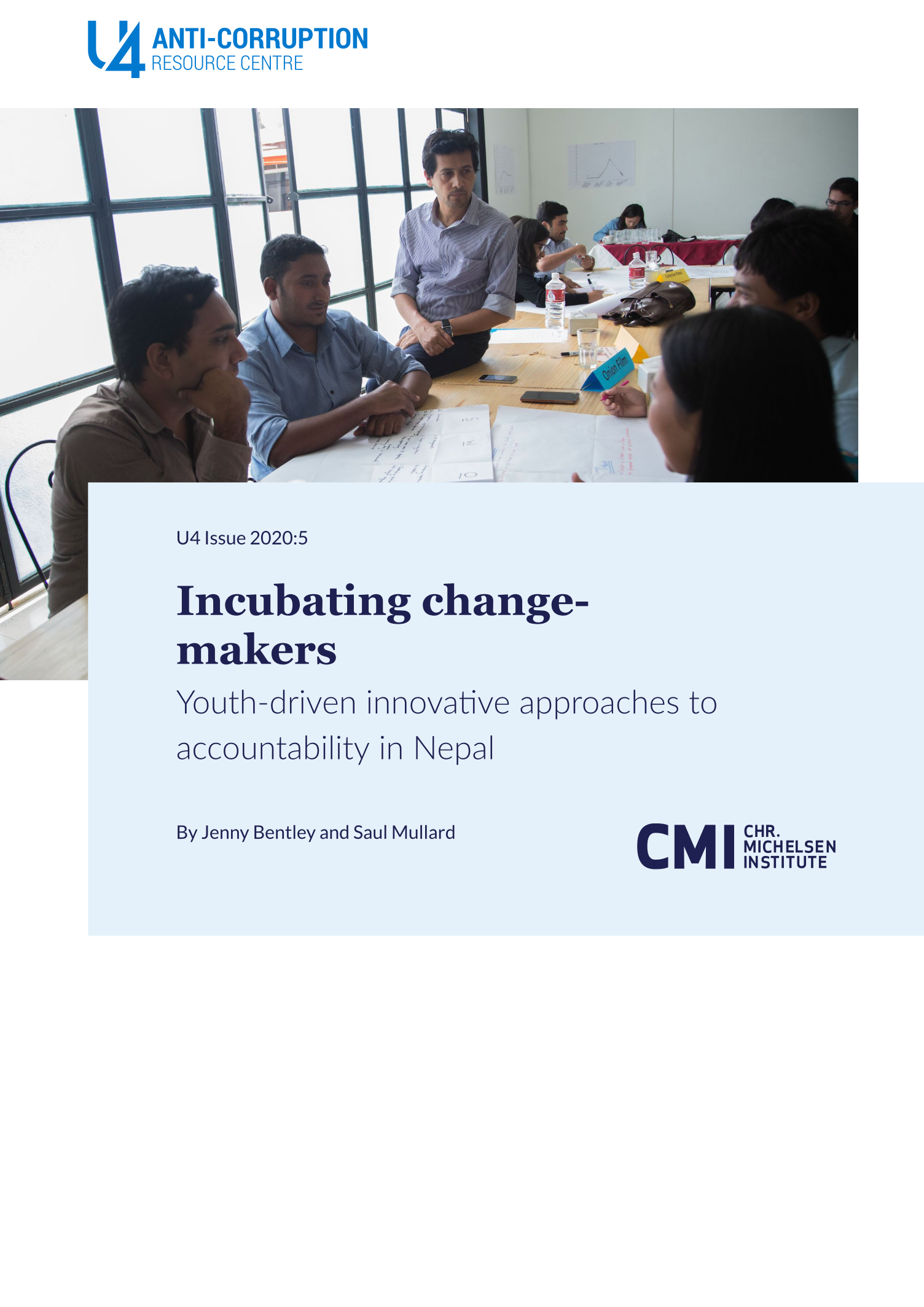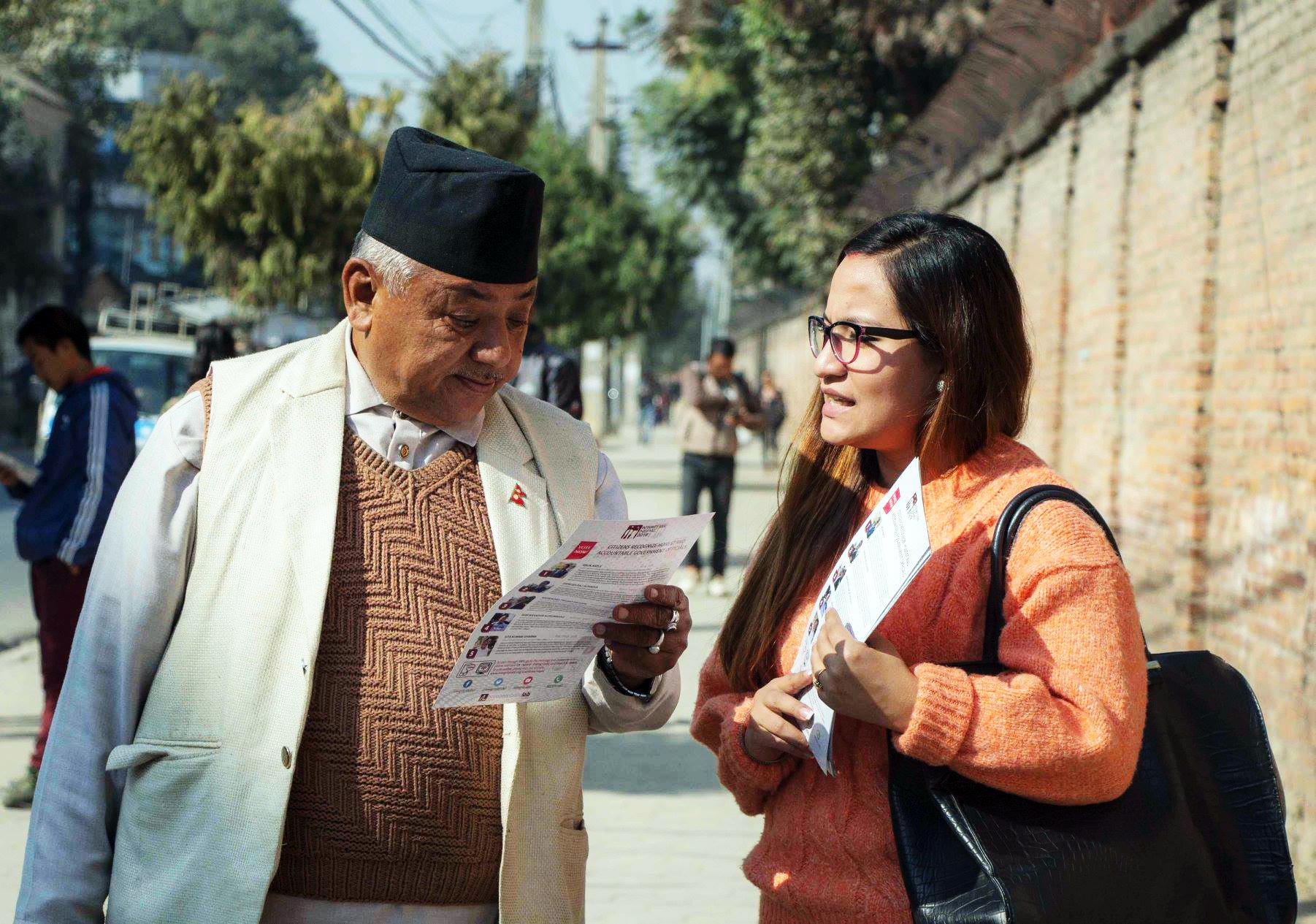Main points
- Youth-driven, innovative projects with alternative definitions of outcomes and measurement are increasingly important for addressing intractable corruption and accountability challenges.
- Idea incubators empower and give youth the flexibility and space to fail and learn without the fear of losing funds.
- There is significant potential in incubator-type programmes to strengthen work aimed at increasing accountability and reducing corruption.
- The development of innovative ideas is not determined by the presence or lack of seed funding. The lack of such funding has led to a more diverse group of participants and a wider variety of innovative ideas.
- Assumptions about how programmes should be funded need to be re-thought when creating innovative approaches to corruption and accountability challenges.

